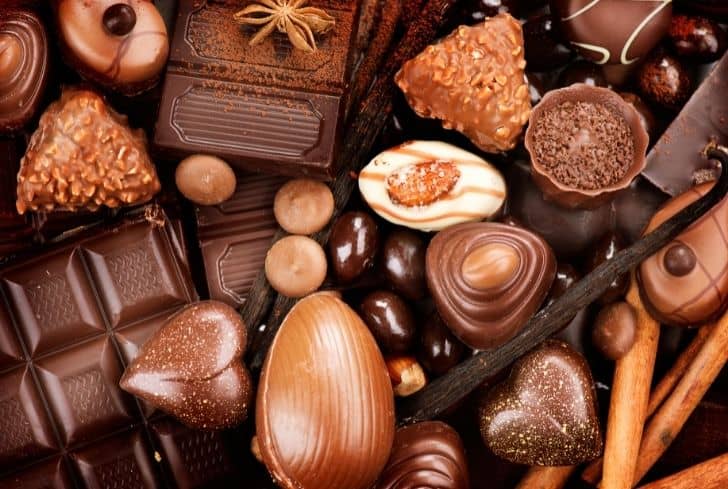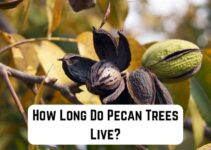Let’s talk about chocolate, the delicious and popular delight beloved by millions of people all over the world. Chocolate is not only delicious but also nutritious, a powerful source of antioxidants and possesses qualities that are capable of controlling certain health conditions like heart disease and high blood pressure. Chocolate comes from the cacao seeds and the cacao tree, meaning it is natural food.
When it comes to composting kitchen waste such as food, there has to be a balance between its usefulness while being composted and the risks it brings while in there. With that said, where does chocolate lie with regards to it being composted? This article will focus on composting chocolate.
Can Chocolate Go in Compost?
Chocolate can be composted, but the overwhelming advice is against doing it. Like other cooked food, it is bound to go bad, and composting such chocolate can do more harm than good.
Proponents of composting chocolate and other food wastes argue that all types of chocolate, including chocolate bars, baking chocolate and chocolate chips, among others, should be thrown into the green bin.
They say that the waste is a valuable source of organic material, and as such, it can be added to the compost pile. However, before throwing the chocolate into the green bin for composting, remove all wrappers and packaging and if the product has any chewing gum in it, remove it and throw it into the black cart as garbage.
On the flip side, there are several problems when it comes to composting chocolate. The biggest mistake with this is that, like any other kitchen waste, chocolate will go bad and rot. When thrown into the composting bin, it will attract pests and other rodents like rats, mice and raccoons.
These rodents can harbor rabies and other diseases that you do not want to invite onto your property. They can also spread the waste all over, fouling the air around as well as the environment in general.
These rodents will also feed on the chocolate, and even if it would have been beneficial to the compost, it will all end up in their bellies, and nothing positive will be added to the compost. The decision can also attract flies and maggots, which are really dirty and will lead to compost that might be harmful to the plants.
Other sugars and baked goods, including bread, cake and chocolate, can also attract vermin and produce the wrong types of bacteria that will harm the plants instead of helping them.
Can You Compost Chocolate Chips?
Again, like with composting chocolate, you can compost chocolate chips, but the overwhelming advice is against it. The proponents of composting chocolate chips advise that organic foods are beneficial to the compost, and with chocolate products mainly, it is because of the nitrogen content within the food.
They argue that chocolate chips, like other foods, are organic matter which can simply be added to the compost pile and may serve a better purpose as compost rather than trash.
The opponents cite similar points as those mentioned above. They say chocolate chips will attract rodents that will consume the food and dirtily the area. The solution is to enclose the compost bin, keeping away the rodents and getting the best from the chocolate chips.
However, this still does not keep away the flies and maggots, which are really dirty and will lead to a compost that stinks and might be harmful to the final compost. One article recommends storing food scraps in a plastic bag in the refrigerator.
Alternatively, you can stockpile all your compostable kitchen waste in a compost caddy or pail until you take them to the compost bin. However, be careful about odors!
Can You Compost Chocolate Cake?
Yes, you can, but you really shouldn’t. Like trying to compost chocolate and chocolate chips, the reward might not be worth the risk. Compost This writes that cake should not be composted. Whether the cake is sponge, pastry or fruit-based, it will not add a lot of nutrients or bulk to your compost heap.
While the cake will rot down quite quickly, it will also attract rats or other vermin to your compost heap in the meantime. The unwanted vermin comes from sugars, milk products, pasta and grains, meat and baked goods like chocolate cake and may produce the wrong type of bacteria that can harm plants and the garden rather than help them.
Chocolate cake will definitely invite rodents such as rats, mice and raccoons that live around. In addition to dirtying the place, these rodents can harbor rabies and other diseases that are a definite no for you and your property.
There is also this concept to watch out for, healthy compostable chocolate cake. The guilty party as to why chocolate cake should not be composted is the sugar. What if the cake was made using healthy and organic raw cane sugar.
An article at plantbasedblonde.com talks about healthier compost cookies, and although they could be made using almost anything in the kitchen, including chocolate chips, the author recommends using an organic ingredient like organic sugar, which is certified organic non-GMO, kosher and vegan friendly.
If such a cookie or cake, even if it contained chocolate, were composted, it would be healthy to the compost, the garden and the plants. Of course, it might attract unwanted visitors like rodents, but if covered well, it might serve its rightful purpose in the compost bin.
Can You Put Cookies in Compost?
Can cookies be composted? Yes! Should they be composted? No!
Like any other food or food waste, cookies can be composted, although research shows that they might not provide enough bulk or nutrients to a composting pile.
The question therefore becomes are there associated risks with composting cookies? Yes, definitely, it is a risk worth not taking. Biscuits, cookies or crackers should not be sent to the composting bin for the same reasons as why chocolate, chocolate chips, and chocolate cake shouldn’t.
Once they are in the composting bin, they will rot down quite quickly, and the next thing you know, they will offer an open invitation to rats, pests, flies, ants and other vermin into the composting heap. They are also not known to provide enough nutrients to a compost, meaning they are a risk and not taking it is the safest option.
If you make these cookies at home for yourself, consider making enough and not too many that they have to be thrown away. The best way to go about this is to freeze the biscuit recipe to only bake them when you need them. However, if you happen to have excess cookies that can go bad, consider keeping them in an air-tight tin.
This keeps them in tip-top condition and saves you the hustle of throwing them away in the first place; making enough for yourself or your family, or keeping them from getting stale or softened, will be precaution enough and will stop you from throwing the cookies in the composting pile, where they will cause more havoc.
Can You Compost Cocoa Powder?
Yes, you can compost cocoa powder, and you should do it. Cocoa powder is made by crushing cocoa beans and removing the fat or cocoa butter. This means cocoa powder contains no sugars that attract most pests, ants and wasps. Unfortunately, there is not much information available about composting cocoa powder or the effects of the powder on the soil and plants, but some threads online tend to approve it.
In one experiment, a user says that they believe cocoa powder contains and can supply plants with nitrogen, potassium, phosphorous and other nutrients. They say that the leaves got greener and perkier after feeding the plants with cocoa.
He argues that although the cocoa might not supply nitrogen to the plants, it provides a better environment for the microorganisms to provide more nitrogen to the plant. Additionally, cocoa contains antioxidants that will kill off invasive ants and pests. If cocoa powder supplies these benefits to a plant directly, it means the same would also be achieved if it were composted.
Another argument arises as to the comparison between cocoa and coffee beans. Despite the two being completely different, they possess almost similar qualities with regards to being used in the garden. Coffee grounds are compostable and are a valuable addition to the garden.
When composted, they suppress weed growth, increase drainage and improve the structure of the soil. Given that coffee grounds and cocoa powder all hail from different natural trees, they will be a valuable addition to the garden and other trees.
Finally, there is a YouTube video claiming that cocoa compost fertilizer contains everything the soil needs to optimize yields and can generate up to 49 bushels per acre more corn than chemical fertilizers alone.
Cocoa compost fertilizers add nutrients, promote the introduction of healthy microorganisms, add humic substances, organic matter and promote plant growth hormones. The beauty of cocoa compost fertilizers is that they can be applied to any type of field.
Additionally, cocoa increases soil fertility, increases disease suppression, increases soil water holding capacity, increases plant biomass, reduces the effects and need to use chemical fertilizers, and reduces the leaching of nutrients.
Can Chocolate-Covered Fruit Be Composted?
Yes, chocolate-covered fruit can be composted. However, caution is advised.
These are simply certain fruits like strawberries, blueberries and other candied fruit that have a white, milk or dark chocolate topping. They are basically fruits with a chocolate covering, and this means they can be composted. However, caution is advised for several reasons.
First, chocolate in itself, as discussed above, has been determined to contain sugar which invites pests, rodents and other vermin. They can do a good job of turning your compost for you, but at the same time, they might eat away the food or cause a mess with it.
Secondly, some of these fruits, like pineapples and citrus fruits, contain citric acid. The citric acid in these fruits can slow down the decomposition process, in addition to the fact that it supports preservation rather than decomposition.
The acidity might also kill the good bacteria that helps break down the material in your compost pile and should therefore be lowered. To counter the increased acidity levels, a deacidification agent like hydrated white lime is required. The lime will react with the fruits’ acidity and ultimately lower it.
There also exist chocolate-covered fruit with other toppings such as nuts, sprinkles and chocolate chips, among others. They are also a positive addition to a compost pile. The only downside is if they invite the rodents, flies and maggots.
However, if the pile or compost bin is well covered, these toppings will decompose well enough. In fact, almost all nuts can break down and become compost. However, black walnuts contain a chemical, juglone, which inhibits plant growth in some garden plants, especially tomatoes.






